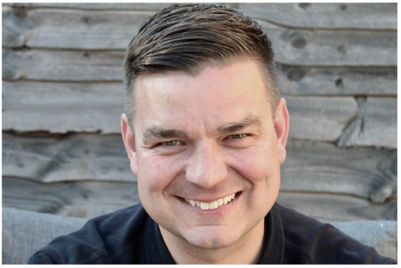
"The consultants are coming." This was something that was said, feared, even laughed at back when Karmarama, the agency where I was managing partner, was acquired by Accenture in 2016.
Since then, there has been a wave of M&As globally, both by creative agencies and consultancies, with the most recent being VCCP Group's acquisition of Cowry Consulting, and Capgemini acquiring 23Red. Additionally, we have seen creative agencies launching consulting wings or changing their model to offer consultancy-like services.
This shift is also reflected in the way that agencies describe what they do, with a move away from the "agency" label. Chatting to two industry friends recently, I learned that both had dropped "agency" from their proposition in favour of "growth acceleration company" and "an alternate consultancy".
At ScienceMagic, where I lead our strategic relationships with brands, we also call ourselves a company, not an agency, because the business was built from the outset to bring both strategic consultancy and creative services under one roof. But regardless of the model or set up, there is undeniably a growing movement towards a broader, more integrated offering.
From a client perspective there are obvious benefits. David Pemsel said that when he was CEO of The Guardian Media Group, he'd meet BCG in the morning and BBH in the afternoon, but wished they could bring some of their people together to stimulate new thinking. C-suite clients want their partners to be able to consult with a bit of magic or create with a bit of science.
From an agency perspective, extending capabilities beyond that of an agency, to offer consultancy services, makes sense for three main reasons.
1. Making more of an impact among the C-Suite
A consultancy model allows for more "upstream" conversations at a CEO or CMO level. For example, we want to help build businesses that matter in a better world. This often requires understanding the CEO agenda and helping deliver against that over the long term – from business strategy and transformation to product and service, through to brand, community connections and comms.
Other areas where a hybrid offering can better service clients include anticipating the future through better data and insight and therefore identifying new communities that drive the future growth of a business. So, it goes beyond just tailoring the brand to speak to these communities and can span to transforming the product or service offering to meet the communities' needs. It could also include the development of sustainability strategies or new innovations.
2. A bigger canvas for creativity
The vision for consultancies and agencies coming together in our industry, was always to apply creativity to the biggest challenges. What if creative thinkers could buddy up with data and business strategy, to focus not just on campaigns, but on purposeful innovation? For example, when I was at Accenture, we had creative talent ideating product innovation to increase adoption for electric vehicles. Imagine creative teams coming up with entirely new disrupter businesses to meet human needs, incubating for big corporates. Bringing together creative and consulting means a bigger canvas for creativity – ideas in their broadest sense.
3. Being treated as a valued partner, not a supplier
The industry has long promoted the concept of equal partnership between agencies and clients, but how often is this really the case? With the short tenure of marketers, and brands which put every key project out to pitch, with sometimes heavy-handed procurement teams – quite often agencies are made to feel like a supplier for a campaign, rather than a valued strategic partner.
Consultants and business strategists are more likely to be in the position of valued advisor and high value partner to the C-suite.
A new era for the industry?
In 2017, when speaking about consultancies coming into our sector, Sir Martin Sorrell commented that it was "a bit odd" and questioned whether we could make the culture work.
Integrating two large existing businesses of any sort isn't easy. To counteract this culture issue, at ScienceMagic we've had both disciplines together under one roof from day one. The advantage of this approach is that it enables you to hire people who want to be part of what you're building. Of course, if you're hiring consultancy talent with no experience of working with creatives, you need to establish frameworks and shared understanding.
Game-changing ideas can come from creative or consultancy, but most often it's the fusion of the two, working together throughout, that can lead to really incredible, transformational things.
In the current global context, "business as usual" is over. This calls for different models and constructs to identify game changing ideas. It's a good time to challenge the status quo and not continue to repeat the models of the past to shape the future.
Hattie Matthews is chief brand officer at ScienceMagic



.jpg&h=334&w=500&q=100&v=20250320&c=1)


.png&h=334&w=500&q=100&v=20250320&c=1)










.png&h=268&w=401&q=100&v=20250320&c=1)


